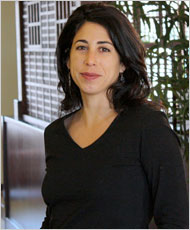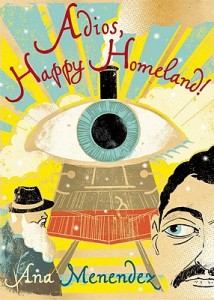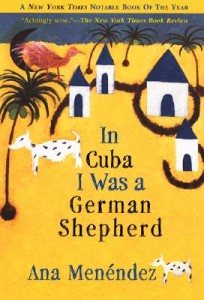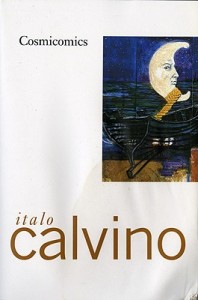 Whether you believe in ghosts or not, you’ll find the past haunting the pages of Ana Menendez’s latest collection of stories, Adios, Happy Homeland! In twenty-seven tales of interlinked prose we enter the mythical, magical world of Cuba. Characters take flight—literally and metaphorically—as they wrestle with issues of family, art, literature, and the need to run away from it all. It is a familiar Cuba, but Menendez’s modern take challenges how we tell our stories. Menendez blends her experiences as the child of Cuban exiles with her own migration narrative as a journalist to weave a magical, sometimes surreal take on Cuban culture.
Whether you believe in ghosts or not, you’ll find the past haunting the pages of Ana Menendez’s latest collection of stories, Adios, Happy Homeland! In twenty-seven tales of interlinked prose we enter the mythical, magical world of Cuba. Characters take flight—literally and metaphorically—as they wrestle with issues of family, art, literature, and the need to run away from it all. It is a familiar Cuba, but Menendez’s modern take challenges how we tell our stories. Menendez blends her experiences as the child of Cuban exiles with her own migration narrative as a journalist to weave a magical, sometimes surreal take on Cuban culture.
Adios, Happy Homeland!, published by Black Cat (an imprint of Grove/Atlantic), is Menendez’s fourth book of fiction. Her first collection of stories, In Cuba I Was a German Shepherd, was a 2001 New York Times Notable book of the year and the title story won a Pushcart Prize. In addition to her other books—Loving Che (2004) and The Last War (2009)—she’s worked as a journalist and prize-winning columnist for the Miami Herald. Now Menendez is establishing a creative writing program at the University of Maastricht in the Netherlands. She and I met in cyberworld and chatted about balancing the memories of the past with the demands of the present.
Let’s begin with process, Ana. I read your first collection, In Cuba, I Was a German Shepherd, when I first started writing fiction and I remember being shocked that you could link stories that way. At what point in the process does the tie that binds them together emerge? Do you begin with character or idea or story?
With In Cuba I began with one character: Maximo. And almost every story grew out of his relationships. It was a fictional treatment of what I had seen in my own community. My mother was forever running into someone who knew someone who knew someone with whom she went to school in Cuba. It seemed to me as a child that all Cubans knew each other.
 Was it a similar process with your latest collection, Adios, Happy Homeland! ?
Was it a similar process with your latest collection, Adios, Happy Homeland! ?
With Adios it was different. These stories grew out of the prologue, which itself grew out of someone else’s fiction: Borges’ “An Examination of the Works of Herbert Quain.” With In Cuba I wrote the stories as a spider spins its web. With Adios, the writing was much more linear: one story led to another, led to another in a pretty direct way.
There is a shared thematic link of flight in Adios, Happy Homeland, but I also saw truth as a permeating idea. The Prologue ends with the declaration “…just because it never happened doesn’t mean it isn’t true” and in “Cojimar” we’re told, “truth is the strangest thing you’ll ever know.” In “Flying” the word true/truth/truly appears on almost every page. So, is wrestling with truth the writer’s ultimate goal?
For me, yes, this wrestling with truth is paramount. It’s the obsession—or I should say puzzle—that has driven all my books in one way or another. In Adios this working out of the truth becomes even more important. The prologue, after all, is written by a creolized version of a fictional author who is presented as a real writer, in a short story that reads like a non-fiction obituary/retrospective written by an Argentine author who sounds like an Anglo-Saxon scholar!
And why might fiction be a fruitful place for this?
Fiction—any art really—is the best way to explore the dynamic between what is real and what lives only in imagination. And the mystery of fiction– the open-ended, indirect poetry of it — is the best approximation of what it feels like to be alive.
 The characters of In Cuba, I Was a German Shepherd straddle worlds and geographies. When I interviewed Jennine Capó Crucet, who is also the daughter of Cuban exiles, we talked about the simultaneous push and pull of being from a place people are often trying to escape. It seems no matter how far you get from home, either for writers or for these characters, there exists this distant voice calling to you. In the title story, Juanito declares, “Here in America, I may be a short, insignificant mutt, but in Cuba, I was a German Shepherd.” What can we learn about identity and place in the present if we’re still living in exile?
The characters of In Cuba, I Was a German Shepherd straddle worlds and geographies. When I interviewed Jennine Capó Crucet, who is also the daughter of Cuban exiles, we talked about the simultaneous push and pull of being from a place people are often trying to escape. It seems no matter how far you get from home, either for writers or for these characters, there exists this distant voice calling to you. In the title story, Juanito declares, “Here in America, I may be a short, insignificant mutt, but in Cuba, I was a German Shepherd.” What can we learn about identity and place in the present if we’re still living in exile?
Interesting that Jennine wrote her Hialeah book while living elsewhere. That certainly has been true for me as well. I’ve never written about Miami while I was living there. The one book I wrote while in Miami is set in Istanbul – a city I still miss as well. All my characters, in one way or another, are divided and trapped by their loyalties. In Adios, one character says, “we’re always leaving.”
Do you feel that way, too?
For me, leaving is the way we learn about identity and place. Travel far and long enough and you realize there is no such thing as a fixed “identity” – though this is often so difficult a realization that we cling to the outlines of who we thought we were.
You play with language in Adios, Happy Homeland! We get Google translations, dream parables, mythical prologues, and made up glossaries. You conclude with a fictional bibliography. Even some of the traditional stories have magical qualities. Was it liberating to write in less traditional forms?
Yes, it was really a joy to write this book. The most joy I had since I was a twenty-seven-year-old living in New York City and working on my first collection. I started Adios after abandoning two novels that were boring me to tears to write. I realized that I hadn’t read a novel I enjoyed in years—yet I was reading every short story that came my way. Who was I kidding! So I sat down to write fragments, more for my own amusement than with any idea toward a finished work.
Did it stir the creative process even more?
Absolutely! For the first time in years, I found myself sitting at the keyboard for hours, forgetting to eat, returning late at night. That’s when you know you are working honestly: when it stops seeming like a job and takes on the form of the old obsessions. As I started linking up the stories, the ideas started coming so fast that I had to open a new file just to keep track of them.
I’m wondering about structure. How did you decide to order the risks you took on the page?
I had a lot of help on the ordering. Initially, I just put them down in the order I wrote them. But a few friends who read it thought there were too many non-traditional forms near the end of the collection. With the help of my fantastic editor, Elisabeth Schmitz, I was able to re-order them in a way that seemed more cohesive. She did the same thing with my first collection, by the way, and now I can’t even remember the original order I gave them—hers was so perfect.
Do you consider this collection a tribute? To whom or what are you paying homage?
Yes, very much a tribute to Cuban writers of both prose and poetry (though in the case of Cuba, I think it’s all poetry, even when labeled prose). Those writers were on my mind with every piece, most strongly in “You Are the Heirs of All My Terrors,” which I wrote as a tribute to the late, brave Reinaldo Arenas.
In your blog post “1989,” published with The Huffington Post, you wrote: “I grew up into a culture where nothing was what it seemed, where liberation meant tyranny, where hope begat doom and optimism was for the mentally deficient.” Are you acknowledging this divide between reality and truth when you deconstruct and reconstruct myths in Adios?
Reality, truth, imagination, desires, delusions—I think these themes have always played a role in my writing. Not so much the hard lines that separate them as the way they bleed into one another, the way our delusions become reality, the way we construct truths out of our desires. The self, our personal histories, are themselves a powerful work of the imagination. Throughout our lives we are sifting, re-ordering, constructing and deconstructing our ideas of who we are.
 You balance journalist and fiction writer. Many writers have day jobs – we’re writers, but also teachers, editors, parents. Do you struggle to separate the writing worlds or do they relate?
You balance journalist and fiction writer. Many writers have day jobs – we’re writers, but also teachers, editors, parents. Do you struggle to separate the writing worlds or do they relate?
“Balance” is quite a hopeful term! In truth, it’s a real struggle. I’m fortunate that I left journalism in 2008. I doubt I could have written a collection like this while still working as a journalist. Truth, or rather, accuracy, is such an overriding concern in journalism that it can’t help but influence the fiction one writes. Of course, it seems to have only fostered Garcia Marquez’s imagination. But most former journalists end up writing in a more minimalist vein. It took me many years and an extended hiatus to muster the courage to write in a different way.
At the moment, I’m working at the University of Maastricht in the Netherlands, setting up a new creative writing program there. The job is incredibly gratifying and I find that thinking about writing and reading feeds my own work. The biggest challenge I have right now is finding time to write fiction while caring for a nine-month-old baby!
That I completely understand! Such a juggle, isn’t it? Babies and books. And speaking of feeding your work, what writers have influenced you most?
James Joyce would be the first. I’ve lost count how many times I’ve read Dubliners. “The Dead” is one of the most perfect short stories ever written. It has an ineffable quality that transcends the form. It’s impossible to summarize it in the way, for example, “A Good Man is Hard to Find” is possible to summarize. To understand “The Dead” you must read every line to the devastating end. I love Kafka and Borges for the way they take on dreams and shatter “reality.”
 Alice Munro is a master. I just love everything she’s written. Though she writes in a more realist vein, her stories are beautiful and moving and I never finish one without feeling I’ve just spent some time with a genius. And I’m a huge fan of Haruki Murakami. I remember the first time I read one of his stories in The New Yorker and I thought, you can do that? You can thumb your nose at the tidy ending? It was exhilarating.
Alice Munro is a master. I just love everything she’s written. Though she writes in a more realist vein, her stories are beautiful and moving and I never finish one without feeling I’ve just spent some time with a genius. And I’m a huge fan of Haruki Murakami. I remember the first time I read one of his stories in The New Yorker and I thought, you can do that? You can thumb your nose at the tidy ending? It was exhilarating.
Are there other short story collections that you recommend that link by theme or character well?
Italo Calvino’s Cosmicomics would have to be at the top of the list—it’s a strange and beautiful ride taken in the company of a “cosmic know-it-all” as one critic described.  Same with his Invisible Cities—you don’t know whether to call it a short story collection or a novel in parts or even poetry. But it’s all sublime.
Same with his Invisible Cities—you don’t know whether to call it a short story collection or a novel in parts or even poetry. But it’s all sublime.
Which writers do you return to again and again?
Alice Munro’s The View from Castle Rock is gorgeous—I learned so much reading and re-reading that collection. I would also include W.G. Sebald’s The Emigrants in this list, though maybe it’s more accurate to call that a novella collection or even a “novel” as I think the publisher described it. All of these fit my definition of a good collection: The whole adds up to much more than the sum of its parts. When you’re done reading them, you are haunted, sometimes for years.